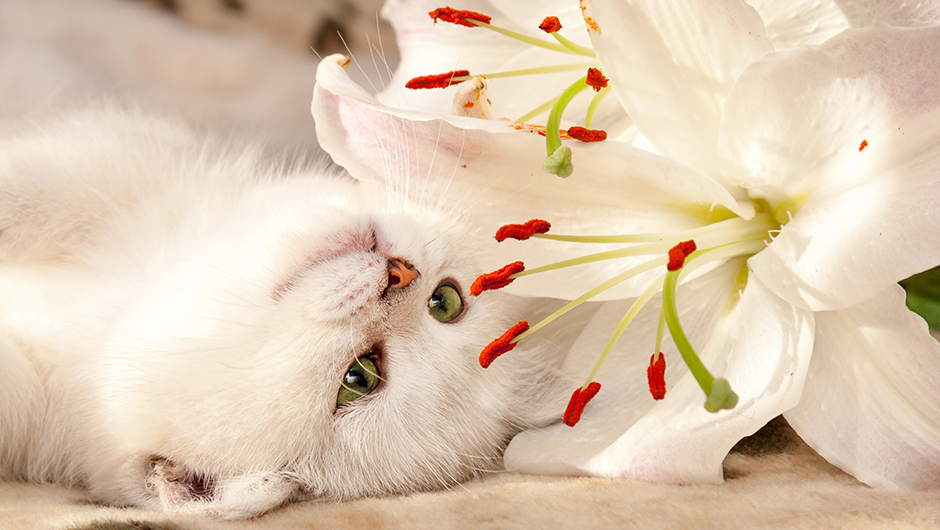Seasonal showers bring plenty of flowers, including new plantings in our gardens, yards and neighborhoods. Unfortunately, many of these beautiful flowers can be poisonous to our pets and other animals.
Many popular plants, such as rhododendron and azalea, are highly toxic to pets—check out this list of poisonous plants maintained by the American Society for the Prevention of Cruelty to Animals (ASPCA). Download one of the mobile apps that identifies plants from a smartphone photo so you can easily identify them on walks with your dog. And be careful about which plants and flowers are growing in your own yard where your dog plays.
Also, fertilizers, insecticides and herbicides have ingredients that can make your pet very sick if they’re ingested, so keep your pet away from yards on walks by using a secure leash. Be especially careful with retractable leashes, which limit your control and allow dogs to explore at greater distances from their owners.
Indoor Hazards
Be aware of cleaning products in your home that can also be a source of pet poisons. In addition to cleaning items and chemicals themselves, there is a risk of medications or spoiled, spilled foods your pet might find underneath couches, chairs and cushions. Some of these can injure your pet’s tongue, mouth and throat, while others can be choking hazards or get stuck in the stomach or intestinal tract, causing life-threatening consequences.
If you clean out your garage and sheds, be sure rat poison and slug and snail bait, which are serious poison for animals, are securely stored. Even if the box says, “pet safe” these products contain substances that can be as deadly to your pet as they are to the critters you want to eliminate.
Dangerous and Deadly Symptoms
Symptoms of poisoning in pets can vary. Among the most common are:
- Bloody, loose stools
- Strange objects or cloth in the stool
- Vomiting
- Lethargy
- Unsteadiness
- Hyperactivity
- Tremors
- Seizures
If your pet experiences any of these symptoms, see your veterinarian ASAP. Bring any poison product packaging with you, if possible, so the veterinarian can develop a specific course of treatment. Do not try to treat the pet yourself based on something you read on the internet. Your pet should be examined and treated by a professional. If your veterinarian’s office is closed for the night or the weekend, don’t wait; go to the nearest veterinary emergency center immediately.
Taking precautions in advance and being observant, as well as reacting early and quickly if you note anything out of the ordinary, can make all the difference in saving your pet’s life.
Top 10 Pet Toxins in 2022
According to the experts at ASPCA’s Animal Poison Control Center (APCC), the top household products that resulted in pet poisonings throughout the United States in 2022 are:
- Over-the-Counter Medications
- Human Prescription Medications
- Food (e.g., raisins, grapes, onions and most nuts)
- Chocolate
- Veterinary Products and Medications
- Household Items / Products
- Rodenticides & Insecticides
- Plants
- Lawn & Garden Products
- Heavy Metals

